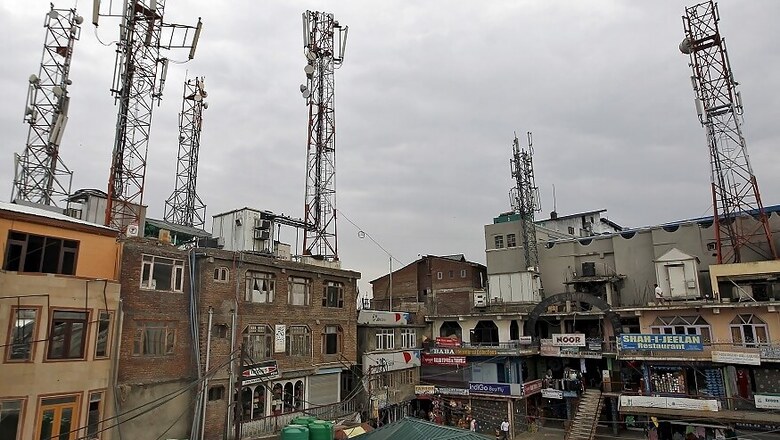
views
New Delhi: India is learnt to have aligned with China, Russia and Japan to oppose use of 26Ghz spectrum band for 5G operations, but industry bodies have expressed their reservations about the decision.
China and Russia have opposed 5G operation in 26 Ghz band to defend their military operations, while India has aligned with them as the Indian Space Research Organisation (ISRO) wants this spectrum band for satellite services.
At the ongoing World Radiocommunication Conference (WRC) 2019, China, Russia and Japan were in support of using alternative bands for 5G services with around 3000 Mhz of frequencies, while India is yet to decide on alternative bands having large chunk of airwaves to support the next generation telecom services, according to industry bodies.
According to industry body Global Mobile Suppliers Association (GSA), China is working to deploy 5G in 3.3-7.125 Ghz range. Signal transmitted in low frequency bands provide higher coverage compared to the transmission in a higher frequency bands. This also leads to proportionate reduction in cost of telecom network.
Industry body COAI has written to telecom secretary Anshu Prakash saying that the proposal submitted by the Department of Telecom (DoT) to use low power of 7 decibel-watt for 5G base station will require 16 times more base stations to adequately provide coverage, thus making the rates of service unaffordable for the people.
At WRC 2019, the matter will be under consideration from November 28 to December 23 at Sharm El Sheikh, where a decision is expected on the use of 26 gigahertz (Ghz) spectrum band for 5G services.
The DoT has accepted the demand of ISRO to use 26 Ghz band, in which 5G ecosystem has been developed, primarily for satellite service. Consequently, the department has submitted this proposal for consideration to the International Telecommunication Union (ITU), which sets global benchmark for wireless services, for discussion at WRC 2019.
The GSA in its communication to the DoT on November 10 said that 188 member countries out of 192 are having liberal view over use of 26 Ghz band for 5G services and India, Russia, Japan and China are having a common and highly restrictive position.
The GSA said that ISRO has not taken any global position and in the absence of global resolution, satellite services will be hampered by interference from other countries.
In another communication to the DoT, the GSA said that with hard position adopted by India at WRC 2019, it is clear that high frequency band in the range of 26 Ghz band and 40 Ghz are not at all a priority for India.
"With such a hard restrictive approach here in WRC, India will never be on 5G map as there is no 5G band possible for opening up in India due to extensive usages/future plans of various government agencies till perpetuity," the GSA said.
The telecom department has received recommendation of Trai for frequency band 3,300-3,600 Mhz band that can be used for 5G services. However, after the claim of ISRO, the DoT is learnt to have been left with 175 Mhz of radiowaves for mobile services.
The global industry body said that Russia and China are opposing the proposal to use 26 Ghz band for 5G services as they have their military usage in it.
"Also Russia has opened up 28 Ghz band for 5G services whereas China is only focussed in 3.3-7.125 Ghz for deploying 5G," the GSA said.
The COAI said that ISRO has plans for only inter-satellite services (ISS) in 26 Ghz band for which it will need only 350 Mhz, 10 per cent of the total frequency range, between 27 to 27.5 Ghz range.
"But the DoT's submission to ITU does not refer to the ISS service at all while they seek the 7 dBw power restriction for the 5G BTS. Also, by seeking such protections they have destroyed the complete band, that when ISRO has no ITU filings for using 90 per cent of the 26 Ghz band," the COAI said.

















Comments
0 comment